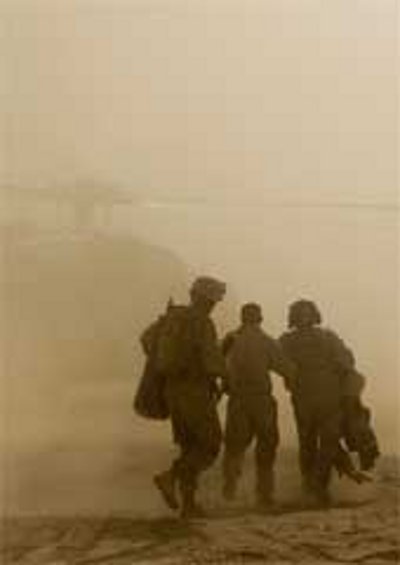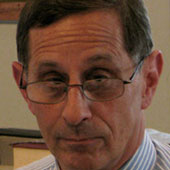How We Missed the Story (Part I)
What could the U.S. government have done different about Osama bin Laden and Afghanistan?
March 4, 2008

Afghanistan has long been a never-never land in the modern world, where perception often trumps reality and where internal alliances are in constant flux. Figuring out the functioning of local politics takes study, but the beginning of wisdom is to work with the forces that are already on your side.
An astute policymaker would have known when to switch sides, as everyone else does in Afghanistan. But switching required a sophisticated understanding of the political facts on the ground.
Bin Laden was an expert on Afghanistan and knew how to cultivate a local constituency that would protect him. Arriving at the end of the mujahideen regime, he quickly shifted allegiance to the Taliban. The United States, lacking a special envoy devoted exclusively to Afghanistan, did not have the political intelligence essential for knowing when to switch sides.
There was an alternative: Ahmed Shah Massoud. The CIA visited him and paid him cash for handing over Stinger missile systems, but the State Department never accorded him top-level attention, never invited him to Washington and treated his rump regime as just one more faction.
However flawed the mujahideen government was in the 1992-1996 time frame, Massoud was the world’s foremost guerrilla leader, with a strong following — at least in the north of the country — and the capability to learn from his mistakes.
But Bill Clinton and George W. Bush both failed to seek his counsel, use his talents, harness his resources or provide sufficient support to his forces to shift the balance until after he was assassinated.
What was the right moment for the shift? It was probably after the August 1998 attack on the U.S. embassies in East Africa, when it became clear that Mullah Omar had an unshakable commitment to grant sanctuary to bin Laden.
By acting as if war could be avoided and the problem could be managed with sanctions, the United States emboldened the other side.
In dealing with bin Laden the political figure, any strategy would begin with a serious assessment of the man, his charisma, his hold over others and his influence in the Islamic world.
The challenge was not to kill him but to undercut his reputation, weaken his charisma and raise doubts among current and future followers about the moral character of a zealot who was responsible for the deaths of thousands of innocent civilians. Intelligence, law enforcement and military policy should defer to these aims and support them instead of the other way around.
At the same time, the grievances that allowed bin Laden to rally would-be martyrs from around the globe had to be examined seriously and addressed.
To the extent that they have reflected on their management of the Afghanistan and bin Laden issues (not much, if their memoirs are any indication), those at the top of the Clinton Administration disagree with the foregoing analysis.
Former Secretary of State Madeleine Albright, for one, has no regrets over policy decisions. “While everybody wishes that life had turned out differently, if you look at everything we did, I’m pretty satisfied that we did everything we could, given what we knew and given the pre-9/11 situation,” she said in an interview.
“I really think we did an awful lot. I don’t have the sense that we failed in any way. We did the right thing.”
It is possible that there was nothing the Clinton Administration could have done differently. The Bush Administration certainly did no better, and the news media also failed to sound the alarm.
What is staggering is that officials from neither administration seem to have searched their souls for lessons learned or, if they have, shared them for the benefit of the country and the general public.
The question is one for future administrations — how will anyone in office master the challenges of a complex world and get it right without first examining past failures in depth, acknowledging errors and making the needed course corrections?
To the extent the national debate on 9/11 has not been overwhelmed by the war in Iraq, it has focused on ways to improve surveillance and tighten security — that is, on the symptoms, not the causes, of the cancer.
The debate should center on how the sole superpower is to relate to the rest of the world in the post-Cold War era, and how it can ensure its own security and international security as well.
For bin Laden, the aim is to provoke a clash of civilizations. By emphasizing military tactics over political strategy, the United States has stepped into the trap he so cunningly set.
Editor’s Note: This is Part I of a two-part series from Roy Gutman’s book “How We Missed the Story.” Reprinted with the permission of the author and the publisher.
Takeaways
Figuring out the functioning of local politics in Afghanistan takes study, but the beginning of wisdom is to work with the forces that are already on your side.
Bin Laden was an expert on Afghanistan and knew how to cultivate a local constituency that would protect him.
The challenge was not to kill bin Laden but to undercut his reputation, weaken his charisma and raise doubts among current and future followers about the moral character of a zealot.
What is staggering is that officials from neither the Bush nor Clinton administrations seem to have searched their souls for lessons learned.
Read previous
The Clintons, Mubaraks and Bushes
March 3, 2008
